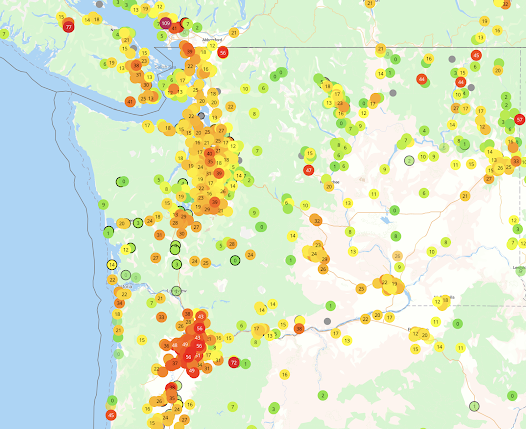Miscommunication in Recent Climate Attribution Studies
Whether one calls it an artful statistical sleight of hand or poor scientific communication, several non-peer-reviewed climate attribution reports have provided misleading information that poorly informs society.
For the dam situation noted above, their model situations, even with their deficiencies, would indicate that global warming would produce a huge increase of probability of getting to 24 ft, but a far lesser influence on water getting to the critical 18 feet. The selection of the threshold used for the analysis has a huge impact on the results.
The bottom line
Many of the climate attribution studies are resulting in headlines that are deceptive and result in people coming to incorrect conclusions about the relative roles of global warming and natural variability in current extreme weather. Scary headlines and apocalyptic attribution studies needlessly provoke fear. Furthermore, incorrect and hyped information results in poor decision-making.
Here in Washington State, several politicians fixate on climate change as the cause of current environmental events, while neglecting key actions needed to ensure we are adapted to the current climate (such as restoring our forests, dealing with problematic power infrastructure, improving water quality). And some media outlets (like a certain major newspaper in Seattle) are aiding such ineffective leaders by pushing an often uninformed and exaggerated climate-change narrative.
There is little doubt that the Earth is warming and that human emissions are a contributing factor, but many of the extreme events being blamed on global warming are predominantly the result of natural or other causes (such as changes in land use). If the Earth continues to warm, by the end of the century the impacts of global warming on extremes will increase substantially, something I have shown in my own research.
We need to worry about climate change and take steps in both mitigation (reduce greenhouse gas emissions) and adaptation. But hype and exaggeration of its impacts only undermine the potential for effective action.




Comments
Post a Comment